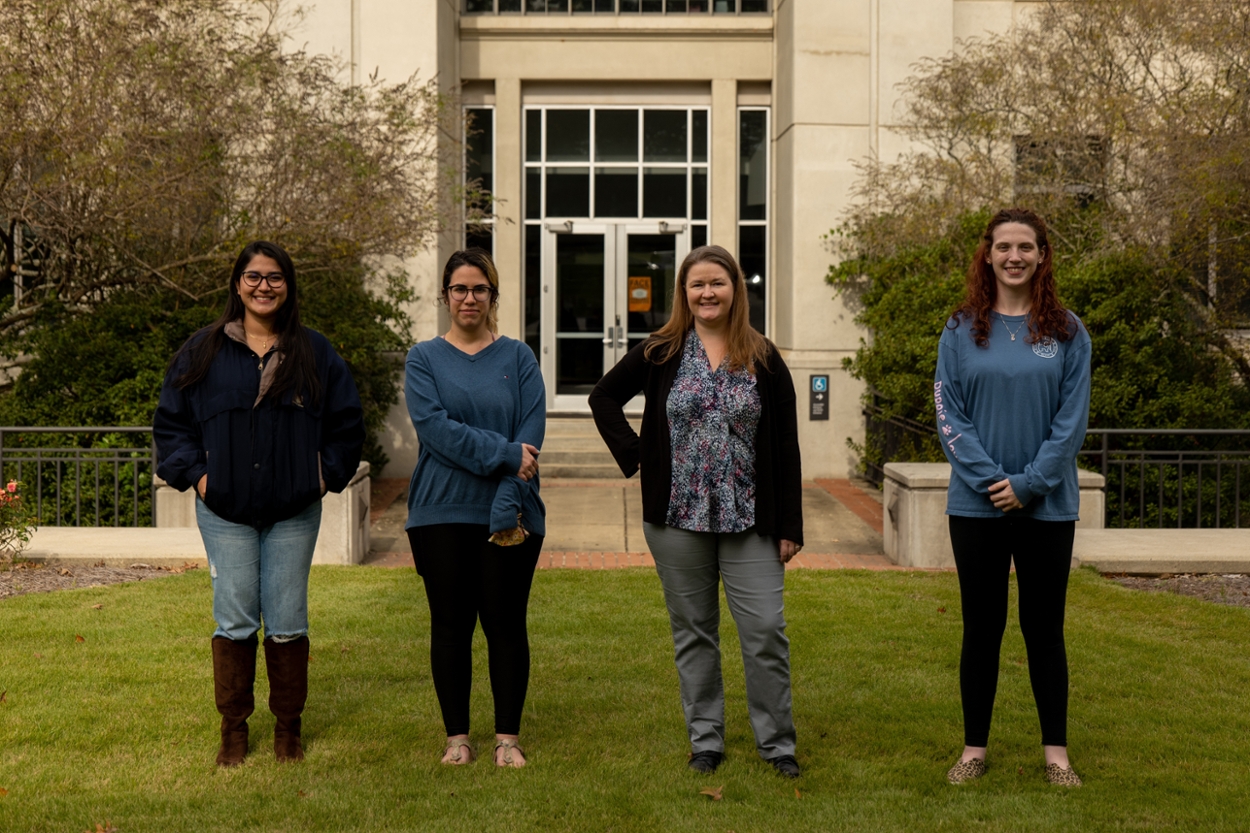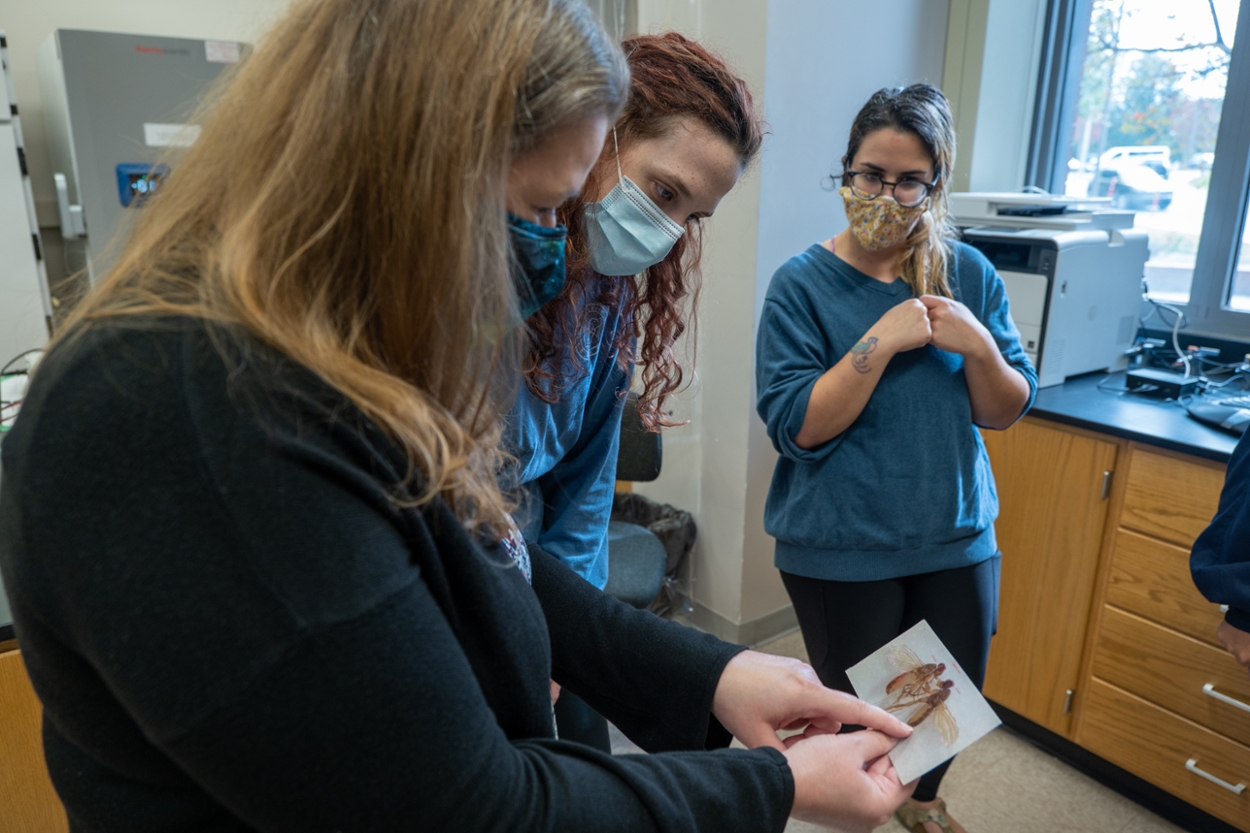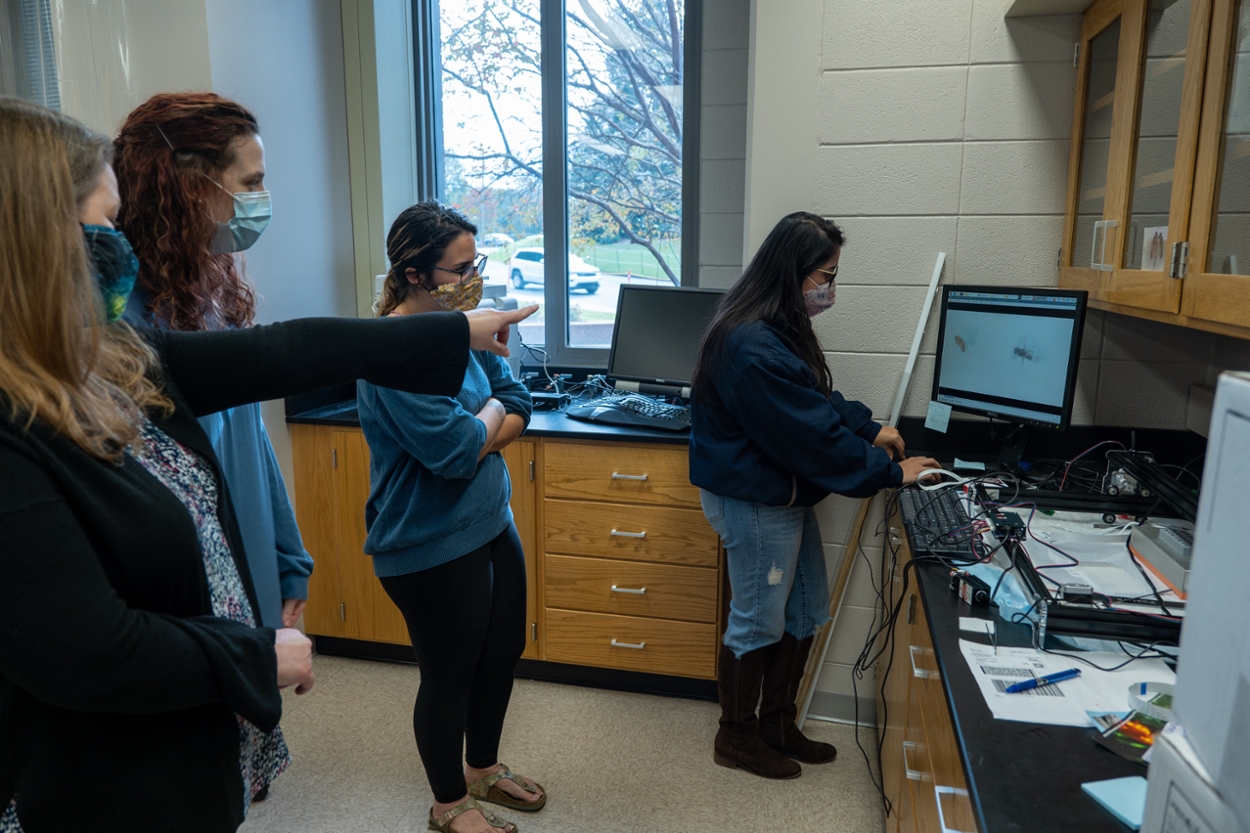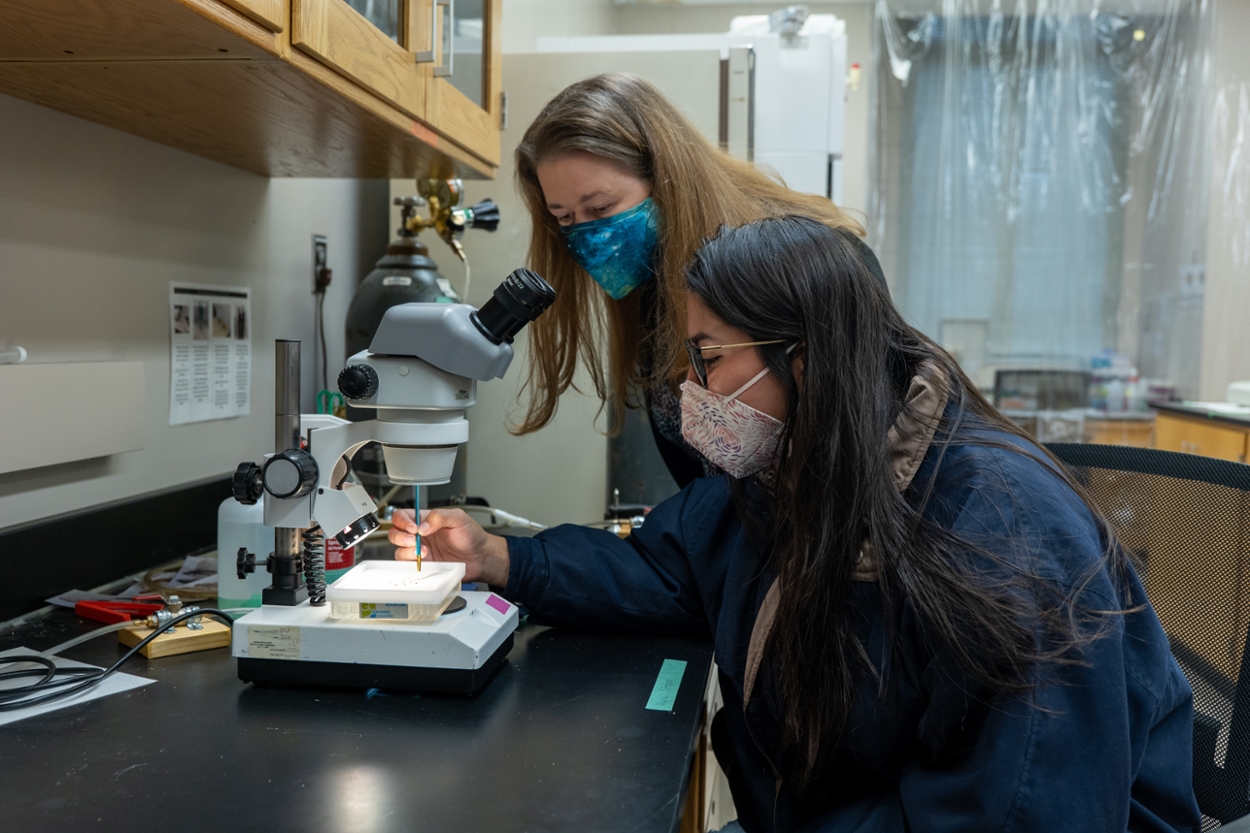COSAM News Articles 2022 January First Post-Bacc student at Auburn gains research experience in computational biology
First Post-Bacc student at Auburn gains research experience in computational biology
Auburn University alumna Madison Watkins has been selected to participate in the National Science Foundation’s (NSF) Research Experience for Post-Baccalaureate Students, giving her the opportunity to take her studies to the next level.

Major players in this NSF funded project stand outside the Rouse Life Sciences Building, where the Stevison Lab is located. Left to right: Natalia Rivera-Rincon, 3rd year PhD student, Ulku Huma Altindag, 4th year PhD candidate, Laurie Stevison, primary investigator on the NSF grant, and Madison Watkins, NSF Post-Baccalaureate in the Stevison Lab.
“I am excited for Madison Watkins to have this rare opportunity as a Post-Bacc since so many students missed out on a traditional research experience during the pandemic,” said Laurie Stevison. “This opportunity will help prepare her for graduate school working on computational analysis of DNA sequences.”
In response to the pandemic, the NSF Research Experience for Post-Baccalaureate Students (REPS) provides support for up to 12 months through the NSF Directorate for Biological Sciences (BIO). Like many labs here on campus, the Stevison Lab closed during the summer of 2020 and is still playing catchup on this NSF-funded project. Watkins will provide critical help in completing this research project.

Laurie Stevison shows a printed image of mutant phenotypes to Madison Watkins and PhD candidate Ulku Huma Altindag, the senior graduate student on the NSF-funded project. For this work, the Stevison Lab uses Drosophila pseudoobscura, a species of fruit fly that has been heavily studied for speciation and recombination. Mutant phenotypes guide the classification of flies as either parental or recombinant to calculate recombination frequencies from genetic crosses.
“Madison’s experience will include complex computational analysis analyzing 3,000 whole genome sequences of fruit flies,” said Stevison, an associate professor in the Department of Biological Sciences. “This large quantity of data points strengthens the project with statistical power.”
Watkins will be working with two doctorate students in the Stevison Lab, which is part of the College of Sciences and Mathematics at Auburn University, a R1 university designated by the Carnegie Classifications of Institutions of Higher Education.

Ulku Huma Altindag and Natalia Rivera-Rincon show photographs on the monitor taken by their prototype robot to Madison Watkins and Laurie Stevison. On the bench is a prototype for a robot that the graduate students are building that will perform high-throughput phenotyping of the mutant flies. Madison will help implement computational algorithms that would categorize the photos taken by the robot to help measure recombination frequencies in genetic crosses.
“This research project aims to understand how heat stress directly impacts recombination rates, or crossovers, exchanging genetic content between genetic markers and affecting evolutionary processes,” Stevison added.
The lab will be using custom software and Auburn’s high performance computing to conduct the computations of the 3,000 sequences.
“In summer 2021, the graduate student will continue isolating the DNA from the fruit flies to give Madison even more data,” Stevison said. “DNA can now be decoded in an incredibly short amount of time compared to it previously taking years to complete.”
The team will be looking at meiotic recombination rates and how environmental stress, such has high temperatures, cause the recombination rates to change over time. This work will have both short-term and long-term implications.

Natalia Rivera-Rincon uses a paint brush to move flies around while showing mutant fruit flies to Laurie Stevison. Flies remain anesthetized on the white pad under the microscope with CO2 being delivered through pores under the surface.
“As a first-generation college student, it is important for me to help Madison gain experience to help her become an independent scientist,” Stevison explained.
Both Stevison and Watkins are from the Southeastern United States and first-generation college graduates. Watkins graduated from Auburn in spring 2020 with a degree finishing her last semester remote amid the start of the current pandemic. Watkins earned a Bachelor of Arts in chemistry with a minor in Asian studies and a Bachelor of Science in biological sciences with cell and molecular concentration.
As part of the NSF-funded award, Watkins will receive mentoring including research, new skill development, professional communication, mentoring undergraduate students, and career planning and professional development.
This unique opportunity is preparing Watkins for graduate school and helping Stevison make an impactful contribution through her research, opening future doors for both of them.
Latest Headlines
-
02/12/2025
-
02/11/2025
-
02/10/2025
-
01/30/2025
-
12/03/2024
